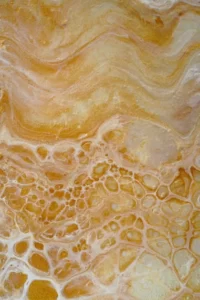Table of Contents
Manuka Honey for Wound Care in Pets
At https://aboutmanukahoney.com, we understand how important it is to keep our furry friends happy and healthy. One common issue that pet owners often face is wound care. Whether it’s a minor scrape or a more serious injury, finding the right treatment can be a challenge. That’s where Manuka honey comes in.
What is Manuka Honey?
Manuka honey is a special type of honey that is produced in New Zealand by bees that pollinate the Manuka bush. What sets Manuka honey apart from other types of honey is its high levels of methylglyoxal (MGO), a compound that gives it its unique healing properties.
The Healing Power of Manuka Honey
Research has shown that Manuka honey has powerful antibacterial properties, making it an effective treatment for wounds. When applied topically, Manuka honey creates a barrier that helps protect the wound from infection. Additionally, it has been found to promote wound healing by stimulating the growth of new tissue and reducing inflammation.
Studies have also shown that Manuka honey can help prevent the formation of biofilms, which are protective layers created by bacteria on wounds. This makes it more difficult for bacteria to thrive and cause infection.
Using Manuka Honey for Wound Care in Pets
Now that we understand the healing power of Manuka honey, let’s talk about how to use it for wound care in pets.
-
Clean the Wound: Before applying Manuka honey, it’s important to clean the wound thoroughly. Gently remove any debris or foreign objects from the wound using clean tweezers or a pair of gloves. Rinse the wound with clean water or a saline solution to remove any bacteria or dirt.
-
Apply Manuka Honey: Once the wound is clean, apply a thin layer of Manuka honey directly to the affected area. You can use a clean cotton swab or your fingertips to apply the honey. Make sure to cover the entire wound with the honey.
-
Cover with a Bandage: After applying the Manuka honey, cover the wound with a sterile bandage or dressing. This will help protect the wound from further contamination and keep the honey in place.
-
Monitor the Wound: Check the wound regularly to ensure that it is healing properly. If you notice any signs of infection, such as increased redness, swelling, or discharge, contact your veterinarian.
Precautions and Further Considerations
While Manuka honey is generally safe for use on pets, there are a few precautions and further considerations to keep in mind:
-
Consult with Your Veterinarian: Before using Manuka honey on your pet’s wound, it’s always best to consult with your veterinarian. They can provide guidance and ensure that it is the right treatment for your pet’s specific condition.
-
Choose the Right Grade of Manuka Honey: Manuka honey is graded based on its MGO content. Look for a honey with a high MGO rating, as this indicates higher levels of antibacterial activity.
-
Avoid Feeding Manuka Honey to Pets: While Manuka honey can be beneficial for wound care, it should not be fed to pets. Honey is high in sugar and can lead to weight gain and other health issues.
-
Store Manuka Honey Properly: To ensure the efficacy of your Manuka honey, store it in a cool, dry place away from direct sunlight.
-
Consider Allergies: Just like humans, pets can have allergies too. Before applying Manuka honey to your pet’s wound, perform a patch test by applying a small amount of honey to their skin. Monitor for any signs of irritation or allergic reaction.
Conclusion
Manuka honey is a natural and effective treatment for wound care in pets. Its antibacterial properties and ability to promote wound healing make it a valuable addition to any pet first aid kit. However, it’s important to consult with your veterinarian and take necessary precautions before using Manuka honey on your pet. With proper care and attention, your furry friend will be well on their way to healing. For more information about Manuka honey and its benefits, visit https://aboutmanukahoney.com.



